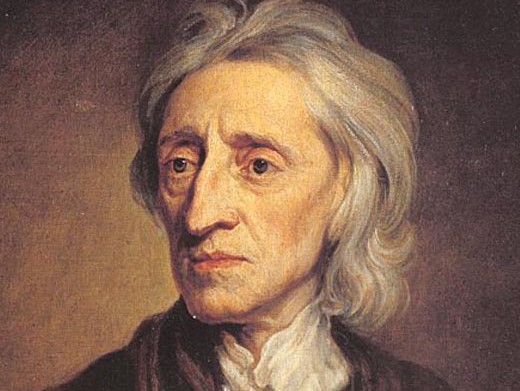
Biography
John Locke was an English philosopher born in 1632. His father was a lawyer and a Puritan who fought against the Royalists during the English Civil War. The commander of his father’s regiment, Alexander Popham, a wealthy MP, arranged for Locke’s education at Westminster and Oxford. At Oxford, Locke studied medicine, assisting in the laboratory of the chemist Robert Boyle, and produced several of his early works, including the texts which would be posthumously published as the Two Tracts on Government and the Essays on the Law of Nature. Locke stayed on at the university until 1666, when he met Anthony Ashley Cooper, the first Earl of Shaftesbury, a powerful political figure who would serve as Lord of the Exchequer and Lord Chancellor, and later as one of the founders of the Whig party.
Shaftesbury’s and Locke’s meeting came about after Shaftesbury had suffered an abscess on his liver, and Locke was sent to attend him. Shortly thereafter, Locke devised a means by which to treat the abscess by surgically installing a pipe with a faucet-like fixture to drain it, which—against all odds—worked. In gratitude, Shaftesbury placed Locke in various administrative offices over which he held sway; Locke served as the secretary to the proprietors of the Carolina colony and to the Board of Trade, composing the Fundamental Constitutions of Carolina in the service of his patron, as well as reports to the Board of Trade that laid out some of his early economic ideas. He also served as a tutor to Shaftesbury’s son, the third earl of Shaftesbury, who would go on to become a philosopher in his own right.
Locke left England for France in 1675, but returned in 1679 to assist Shaftesbury during the Exclusion Crisis. Shaftesbury was involved in the Whig effort to prevent Charles II’s Catholic younger brother, James, from inheriting the throne, at first by means of parliamentary legislation to exclude Catholic heirs from the royal succession. Under an increasing cloud of suspicion for his involvement in extra-legal Exclusion efforts, Locke fled to Holland in 1683 and did not return to England until 1688. It was long thought that Locke wrote the Two Treatises of Government in 1688 in order to provide a philosophical justification for the Glorious Revolution, but more recent scholarship has suggested that he in fact composed most of the work during the period of the Exclusion Crisis in the context of pressure to find a way to exclude Catholics from the royal succession. The final version bears the traces of both events, and the Glorious Revolution was certainly conducive to Locke’s own politics. He returned to England and began publishing his work for the first time. In 1689, the Two Treatises and the Letter Concerning Toleration were published anonymously, and he had the Essay Concerning Human Understanding printed under his name.
The Essay in particular brought him broad fame, while his authorship of the other works remained under dispute but suspected for some time. The 1690s continued to be a fruitful decade for Locke, and he published Some Thoughts Concerning Education,”The Reasonableness of Christianity,” and papers on money and interest, as well as several lengthy responses to objections to his works on toleration and Christianity. Locke remained active in both political and intellectual life in England until his death in 1704.
For more biographical information, see also:
Peter Laslett, “Introduction,” Two Treatises of Government, Cambridge: 1988.